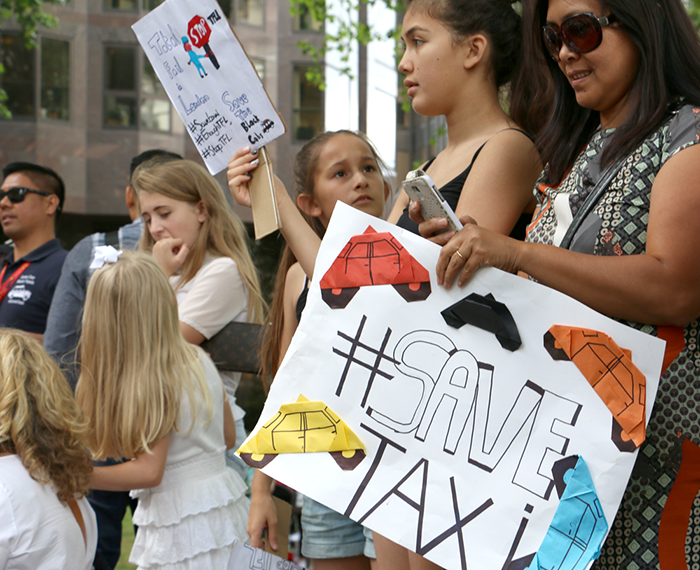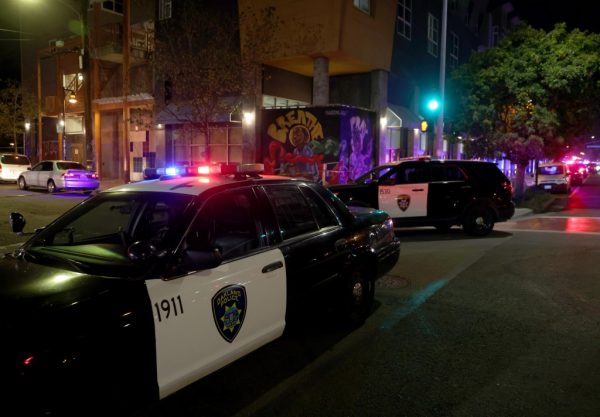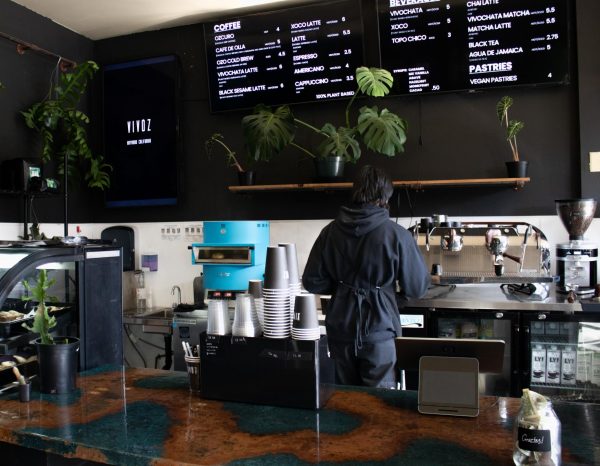Across the pond: A student in London
It was my first week in London. I, along with my classmates were touring the area when I noticed a group of protestors with their signs held up in the air and the words #SaveTaxi written on them. As cars, buses and taxis passed by, an assortment of honks sounded through the air.
I signed onto Twitter and searched for the #SaveTaxi hashtag. Hundreds of tweets popped up. One read, “It’s time we stand up together, people power is much more powerful than corruption #SaveTaxi.” Being in another country, I thought that most of my ties from the Bay Area would be temporarily cut, but here I am, a witness to problems caused by the Bay Area, more specifically, Uber.
The San Francisco-born transportation company, Uber, came to light in 2009 with a promise to evolve the way the world moves and in some ways they have, according to their website. Uber runs on an app, where you set your pickup location and wait for your driver to arrive. The app even gives you fare estimation for how far you’ll be traveling.
After the protest, I decided to travel by taxi through the city asking the drivers what their issues are with the Uber expansion to London. “They’re not licensed like us,” said an anonymous cab driver. “They’re taking the money out of this country. They don’t have to pay taxes like the black taxi drivers. People can come over and just start working.” The driver continued to list several concerns he had about Uber and how the drivers operate in London.
A major concern for Uber drivers is that their drivers do not have a license to meter rides. When you get into a black taxi, you can watch the fare go up as you’re riding around town. Before taking an Uber, the app will give you a fare estimate prior to the driver arriving to your location. If there’s traffic, your fare may go up which means they have metered your ride.
“They’re not licensed to have a meter so how can they meter it?” asked the driver.
Earlier this year, Business Insider listed several places that have banned, suspended or restricted Uber. Oregon, Nevada and Japan are listed as places that have placed a full ban on Uber’s services. Australia, Germany and the Netherlands have placed a partial ban on Uber. Other countries like Spain and South Korea have suspended operations until they investigate Uber further.
Artemis Mercer is the wife of a cab driver and spearhead of the #SaveTaxi movement, a group of husbands, wives and families of licensed London black cab drivers in hopes of urging Transport for London to regulate private companies like Uber.
said Mercer.Mercer’s husband has been a cab driver for over 10 years. “We are fed up of our drivers being demoralised and unhappy with their work as this is affecting our family lives. We are therefore campaigning against TFL to implement and enforce their regulations which is the cause of all the problems facing the taxi trade today,” Mercer said.
According to the #SaveTaxi campaign, the TFL has yet to regulate Uber and hold those drivers accountable to the same standards as taxi drivers.
According to The Guardian, the National Union of General and Municipal Workers or GMB said, “Uber does not abide by the law in relation to the pay, holiday allowance, or health and safety of its drivers.”
Garrett Emmerson, TFL’s chief operating officer of surface transport, said, “As the regulator of London’s taxi and private hire trades, we apply legislation fairly and equally. We have not treated, and do not treat, Uber any differently to any other London operator and we are satisfied that Uber currently complies with private hire licensing requirements.”
Ira Lazo, an Uber Driver and Cal State East Bay student says she feels the Bay Area is the only place in the world where Uber is accepted.
“To be honest, I saw it more from the taxi driver’s point of view,” said Lazo in response to the #SaveTaxi demonstration. Lazo explained there is a lack of screening Uber does with their drivers and that other than checking the prospective drivers history, proof of insurance and vehicle, there is no real screening process for Uber drivers.
“You innovate or you die,” Lazo commented. “You just become extinct. I think the black cab company should find a way to become relevant again. You just can’t be entitled to being number one all of the time.”
A recent study done by Philadelphia’s Temple University sought out to answer one question: Has drinking and driving deaths decreased since the birth of Uber? The results showed that since Uber stepped onto the scene there has been a reduction by 3.6 percent to 5.6 percent.
On the surface, Uber’s purpose and mission is great. It creates jobs for the Average Joe while easing away travel woes. While the downside is the threat Uber poses to job security for taxi drivers, leaving the older generation displaced as millennials continue to conquer the world.












